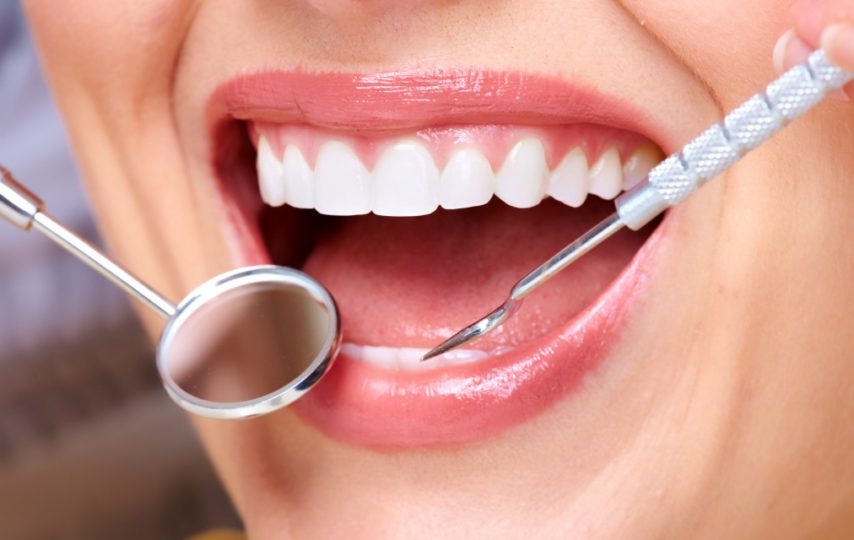The periodontal disease is also known as gum disease.
When the bacteria in the plaque which is a colourless and sticky film formed in the mouth, build up in between the teeth and the gums, periodontal disease occurs. The gums that surround the teeth can get inflamed when the bacteria start to grow.
If not treated the gums and the supporting structure of bone can start deteriorating. This can lead to the recession of the gums and even loss of teeth.
Apart from that, the gum disease is also seen to be associated with other ailments like heart disease, strokes and diabetes.
Symptoms of Periodontal Disease
Without any noticeable symptom, gum disease can also progress. But in most cases, you may notice one or more of the following symptoms. Just read on.
- Bleeding of the gums at the time of brushing the teeth
- Sensitivity of gums
- Swelling or redness of the gums
- Gum tissue recession
- Pus-forming at the gumline
You should let your dentist know immediately if you face any of the symptoms mentioned. A classic symptom of developing gum disease happens to be the presence of deep pockets. At the dental care chamber your dentist your dentist will gauge the depth of pockets between the teeth and the gums.
Prevention of Gum Disease
There are several factors contributing to the development of periodontitis or gum disease through plaque and bacteria are said to the main culprits. Just have a look.
-
Smoking and Use of Tobacco – The risk of periodontal disease is enhanced by tobacco. Higher the risk the more you smoke. Smoking deteriorates the condition further if you have periodontal disease. There are some cases of periodontal disease that resist treatment and smoking is the major reason for that. The smokers develop deeper periodontal pockets and also lose more bones as the disease worsens. Quitting to smoke can benefit your periodontitis problem in a great way.
-
Genes – There are some people as compared to others who because of their genes can develop periodontal disease. But the genes do not make the gum disease inevitable. But even the people who are highly prone to gum disease can control or prevent the disease with great oral care.
-
Gritting, Grinding or Clenching of the Teeth – These habits do not give rise to periodontal disease. But if the gums are already inflamed then these can create a much more severe disease. Excessive pressure is created on the gums because of these as a result of which the periodontal ligament and bone can break. In most cases, this pressure can speed up the breakdown of the periodontal bone and ligament. In most cases, people can learn to stop this habit by realising when this is happening and relaxing. If these do not work, then your dentist can recommend a customized mouth guard to reduce the pressure of grinding and clenching the teeth.
-
Fluctuating Hormones – Alteration can occur in the mouth whenever the levels of hormone shoot up and go down in the body. The severity of gum disease can be increased during puberty and pregnancy. Menopause can also do the same.
-
Ailments – There are certain diseases that can actually have a higher risk of developing periodontal disease. People with diabetes have a greater chance of developing periodontal disease and gum disease is said to be more severe under such circumstances. HIV infection and rheumatoid arthritis can also give rise to and make the periodontal disease more severe.
-
Crowded or Misaligned Teeth, Bridgework or Braces – Plaque and tartar formations can be enhanced by anything that makes it challenging to brush and floss in the right way. The greater amount of plaque and tartar you have the more is the chance of gum diseases developing. The periodontists and dentists can demonstrate the best way to clean the chompers even though it is difficult. For example, you can use special methods of threading and special tools for cleaning under braces and around bridgeworks. Orthodontics can also be recommended by the dentist if your teeth are overcrowded. This will provide a better chance of preventing the disease.
-
Medicines – Xerostomia or dry mouth can be caused by several medicines. This is especially the case with high blood pressure and depression. Plaque is more likely to be formed if you don’t have sufficient saliva. The other medications can enlarge the gums. The medicines like Cyclosporine, Phenytoin and Nifedipine are known to cause gum disease.
-
Nutrition – Severe deficiency of vitamin C can make the gums bleed. Nutrition also plays an important role in the maintenance of great overall health.
If you have periodontitis you should see the nearest dentist so that the condition can be arrested before it takes an ugly turn and makes you suffer.





